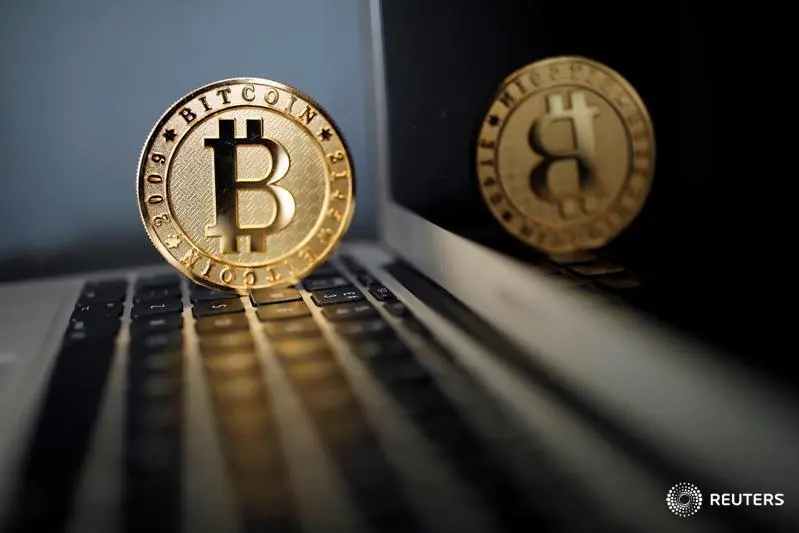PHOTO
NEW YORK - One of the chief strengths of crypto-currencies is becoming their weakness. Freedom from regulation was the big draw of bitcoin, ether and their proliferating kind. But the exchanges set up to trade them often lack basic controls over identity, fraud, technology and even volume, a Reuters investigation shows. Without fixes, that will consign digital currencies to the financial fringe.
These bourses can be prone to hacking. Kraken suffered a denial-of-service interruption in May, for instance, during a 70 percent drop in the price of the ether currency – and such reactions can be exacerbated by a lack of circuit breakers that halt trading.
Virtual heists are common, too, according to the Reuters special report. Some 980,000 bitcoins have been stolen in at least 36 incidents since 2011. At present rates, that’s worth some $4 billion. Some also fail to demand the most basic security checks and know-your-client procedures that more traditional venues have to insist on. The Poloniex exchange asked some users to supply only a name, email address and country of operation. Meanwhile, some Chinese exchanges have inflated deal flow to attract business, according to former employees.
Such drawbacks have not stopped a marked increase in interest over the past few months. The total market value of all digital currencies was some $140 billion on Sept. 18, according to Bernstein analysts, a more than 10-fold increase over 12 months. Bitcoin accounts for around half the total value – and its price has surged 10 percent again in the past 10 days.
It smells like bubble territory, with volatility making them even more risky. Speculators may like it, including former Fortress bigwig Mike Novogratz, who is raising a $500 million digital-coin fund. It attracts criminals, too. Crypto-currency cases now account for three-quarters of the time the FBI devotes to anti-money laundering, it revealed at a recent Morgan Stanley event. The U.S. law-enforcement agency also said most ransom payments are now demanded in bitcoin or one of its rivals.
The lack of a solid market structure, though, is what worries the likes of JPMorgan Chief Executive Jamie Dimon, who recently remarked that bitcoin is “worse than tulip bulbs. It won’t end well ...It’s a fraud.” Dispelling that widespread notion will require exchanges to vastly up their game.
CONTEXT NEWS
- Many crypto-currency exchanges are beset by issues ranging from easily hackable technology to heists to lack of adequate money-laundering controls, according to an exclusive Reuters investigation. Some have also falsified trading flows as a way of attracting more business, according to former exchange employees.
(Editing by Rob Cox and Martin Langfield)
© Reuters News 2017
These bourses can be prone to hacking. Kraken suffered a denial-of-service interruption in May, for instance, during a 70 percent drop in the price of the ether currency – and such reactions can be exacerbated by a lack of circuit breakers that halt trading.
Virtual heists are common, too, according to the Reuters special report. Some 980,000 bitcoins have been stolen in at least 36 incidents since 2011. At present rates, that’s worth some $4 billion. Some also fail to demand the most basic security checks and know-your-client procedures that more traditional venues have to insist on. The Poloniex exchange asked some users to supply only a name, email address and country of operation. Meanwhile, some Chinese exchanges have inflated deal flow to attract business, according to former employees.
Such drawbacks have not stopped a marked increase in interest over the past few months. The total market value of all digital currencies was some $140 billion on Sept. 18, according to Bernstein analysts, a more than 10-fold increase over 12 months. Bitcoin accounts for around half the total value – and its price has surged 10 percent again in the past 10 days.
It smells like bubble territory, with volatility making them even more risky. Speculators may like it, including former Fortress bigwig Mike Novogratz, who is raising a $500 million digital-coin fund. It attracts criminals, too. Crypto-currency cases now account for three-quarters of the time the FBI devotes to anti-money laundering, it revealed at a recent Morgan Stanley event. The U.S. law-enforcement agency also said most ransom payments are now demanded in bitcoin or one of its rivals.
The lack of a solid market structure, though, is what worries the likes of JPMorgan Chief Executive Jamie Dimon, who recently remarked that bitcoin is “worse than tulip bulbs. It won’t end well ...It’s a fraud.” Dispelling that widespread notion will require exchanges to vastly up their game.
CONTEXT NEWS
- Many crypto-currency exchanges are beset by issues ranging from easily hackable technology to heists to lack of adequate money-laundering controls, according to an exclusive Reuters investigation. Some have also falsified trading flows as a way of attracting more business, according to former exchange employees.
(Editing by Rob Cox and Martin Langfield)
© Reuters News 2017





















